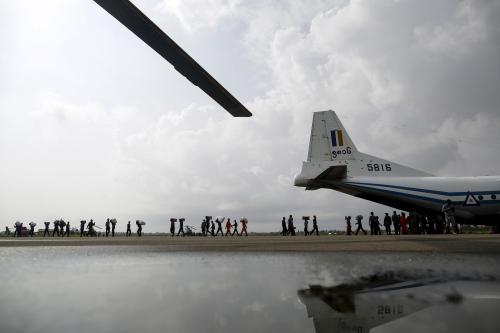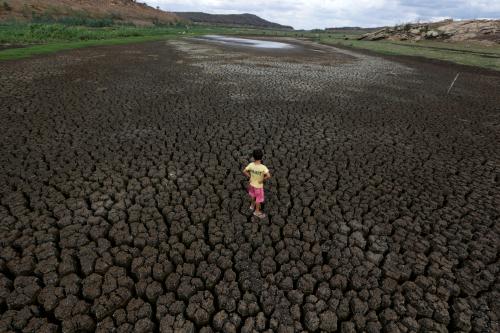

10:00 am EDT - 11:15 am EDT
Past Event
The Middle East is currently warming at nearly double the rate of the rest of the world, presenting current and future challenges for livability and domestic agricultural systems. At the same time, high inflation, fluctuating energy prices, and the geopolitical effects of the Russian invasion of Ukraine continue to drive up food insecurity levels across the Middle East. In a region with already high migration and displacement due to conflict and a lack of economic opportunities, these trends will likely continue to be exacerbated by the interlinked challenges of climate change and food insecurity.
On May 15, the Center for Middle East Policy at Brookings hosted an event on how pressing issues of food insecurity and climate change will affect both internal urbanization and external migration in the Middle East, and opportunities for international and U.S. action. Ferid Belhaj, the World Bank’s vice president for the Middle East and North Africa, provided a keynote address. His remarks were followed by a discussion on implementing change with Brookings experts Marsin Alshamary, Reva Dhingra, and Jeannie Sowers. The conversation was moderated by Reuters bureau chief for Lebanon, Syria, and Jordan Maya Gebeily.
Viewers can submit questions by emailing [email protected] or by joining the conversation on Twitter with #MiddleEastevent.

Panelist


Reva Dhingra
February 15, 2023

John R. Allen
September 4, 2019

John Podesta
July 25, 2019